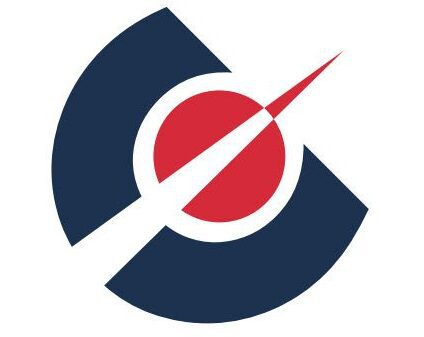Only 17% of military service members serve 20 or more years of active duty and qualify for military retirement. If you’ve dropped your papers, or are considering dropping your papers in the next 12 months, and want to pursue civilian career opportunities upon retirement, here are the top 5 things you can begin doing today to smoothly and successfully transition to civilian employment.
1. GATHER
Your resume is one of the most important tools in your career development toolbox. The right resume will open doors for you. To craft a military to civilian resume that will help you secure rewarding employment, you’ll need to GATHER important career information.
Start by accessing and downloading all of your training and personnel records via your DS Logon, Verification of Military Experience and Training (VMET) DD Form 2586 and Official Military Personnel File (OMPF). These records will contain information vital to your work history and experience, education and training, transferable skills, experience, qualifications and credentials, as well as security clearances, certifications and licenses.
Your performance reports contain quantifiable experience and accomplishments so they are the basis for an impactful, results-based resume. Although they may not include everything you need for your resume, they will provide a strong start to your resume. Create a digital “Brag Book” with 10 years of performance evals (EPRs, OERs, NCOERs, Fit Reps), award certifications & write-ups, training information, and record brief. I recommend having printed copies of all these reports on hand, as well.
Review each performance report and highlight every sentence with a number. Keep in mind that numbers may be a total quantity, percentage, dollar amount, fraction, or timeframe.
Numbers are important because:
- Our eyes are naturally drawn to numbers, specifically $ amounts & %,
- Numbers equate to credibility
- Numbers are impactful and help to quantify your experience
- Show the impact you made on the organization and how you have optimized your time
The highest-ranking numbers on your resume are the dollars and percentages. Recruiters and hiring managers look for these figures and they can truly set you apart from candidates who don’t include them. Examples include:
- Saved $1.3M…
- Directed $16M in…
- Achieved a 99% success rate…
- Maximized a 95% proficiency leading to…
- Ensured 100% of personnel trained…
Your highlights may also include great bullet points like:
- Repaired 60+________ in record time.
- Managed 42 contracts essential to…
- Supported over 12 investigations resulting in…
- Moved 100 tons of cargo in ________hours/days with no injuries or losses.
2. RESEARCH
It’s no secret that the civilian world is different from the military where you’ve spent at least 20 years of your career. The good news is that there is a lot of information in the public domain to help you understand civilian jobs, career paths, hiring processes, and trends. You can even find military-friendly employers with dedicated military recruiters to help you navigate their organizations. Many corporate military recruiters are former military or military spouses. We will discuss the Top 10 military-friendly companies in Step 5.
An important first step in the research process is to get a pulse of the job market where you want to retire. Entering search terms like “best employers in (location)”, “military-friendly employers in (location)” and “top jobs for (career field) in (location)” to create some lists.
To be clear, civilian job titles are different from military titles. Fortunately, job descriptions will include some keywords from your field. By searching those keywords, you’ll begin to notice a pattern of job titles responsible for similar functions but called something different. For example, if your background is working in Supply Chain, your search will return jobs with titles like Logistics Manager, Purchasing Specialist, and Procurement Director. Make a list of jobs that appeal to you and review them to learn your best options.
The top job search websites include Indeed, LinkedIn, ClearanceJobs, ZipRecruiter and Glassdoor. You can even search Google. That’s right – Google Jobs is a job search engine that aggregates job postings from other sites. There’s no dedicated URL. Just go to Google and enter search terms in this format: “field or title jobs in preferred location” or “Engineering jobs in Chicago.” The more specific your search terms are the more focused your results will be.
3. WRITE
Writing your resume can be the most challenging step in the military-to-civilian transition. Instead of starting at the top of the page where your career highlights will be listed, I recommend starting with your experience section.
At this point, make it easy on yourself and copy titles, dates, locations, and accomplishments directly from your performance evals over the past 10 years. You can translate them later. Just get everything on paper.
This master resume lists everything you’ve done in your career. It will have everything you’ll need for any job you apply for – but you’ll have to tailor it to each position because every detail is not relevant to every job. Editing and redacting can be difficult. A professional resume writer familiar with military careers can help you decide what is most significant and relevant.
4. TRANSLATE
Unfortunately, after 20+ years of service, military accomplishments and skills often get lost in translation when veterans try to transition from a military career to civilian employment. Ineffective skills translation and skills mismatches are key contributors to veteran underemployment and unemployment.
What is more, every time you include a military acronym or use other military jargon in your resume, you’re giving a prospective employer a reason to exclude you from consideration. Civilian recruiters, HR professionals, hiring managers and applicant tracking systems (ATS) don’t understand military jargon so other candidates’ resumes that are easier to understand get moved ahead in the process, even if they are less qualified. Here’s what you need to do to get your resume considered.
It’s time to translate your master resume. At a minimum, there are three major categories you need to translate so get your highlighters out. You can start by translating all acronyms. Highlight every single one, including systems, certifications, licenses and educational degrees. Then open your master resume file and spell them out with the acronym in parentheses beside it.
For example, MBA might be listed on your resume, but the job description says “Masters degree preferred.” The ATS system will search for resumes with “Master of Business Administration” or “Master’s in Business Administration” but not “MBA.” Go ahead and write out “Master’s in Business Administration (MBA).” A human being may understand what MBA means, but they’ll never see your resume because MBA doesn’t match the ATS search terms. ATS systems are used in 70% of large companies.
Next, translate military experience and titles into civilian terminology. Many evals use military words like “commanded, and “executed” That is appropriate for the military but maybe too “commanding “for civilian employers who would prefer to see words like “Led”, “Directed” or “Supervised.” Check out our freebie with 700+ Resume Power Words
Add alt text
To help you translate your experience and titles quickly and efficiently, you can download one of the largest military jargon to civilian phrases here: https://www.careerconfidence.us/100-military-to-civilian-translations.
5. NETWORK
In the civilian world, it’s said that it’s not what you know, but who you know. Successful candidates are often chosen over more qualified candidates because they were personally referred by someone the hiring manager respects.
If you think networking sounds contrived, you may be right. But think about it. You are already a member of one of the most distinguished, honorable groups of individuals in the world. When someone introduces you to a retired soldier, Marine, sailor or airman, there’s unspoken, mutual respect.
Start networking and connecting with other veterans, friends, acquaintances, and ask for referrals to recruiters and HR professionals who are working for companies you are interested in. Some of our favorite companies dedicated to hiring veterans include these Top 10 Military Friendly Companies:
#1-Amazon
#2-Aetna
#5-Cisco
#6-CVS Health
#7-Dell
#8-fiserve
#9-Leidos
#10- Verizon:
Others include: Lockheed Martin, Northrop Grumman, Facebook and UPS. Check out more Military Friendly employers.
During the pandemic, online networking has become common practice. LinkedIn is one of the best places to connect and expand your network. Besides connecting with individuals you may already know, you can join LinkedIn groups like the Veterans Mentor Network.
Finally, virtual job fairs and hiring events take place regularly. You can sign up for free at RecruitMilitary.
If you’re concerned your resume could have more mistakes complete this contact form to get a free resume review.
Written by Cassie Hatcher, CEO of Career Confidence LLC, a Certified Professional Resume Writer (CPRW) and Certified Veteran Career Strategist (CVCS) who translates military leadership experience to ensure your resume is on-target for the civilian workforce.
For 8+ years, Career Confidence Resume Services has specialized in translating military experience into accomplishments-focused resumes. Our goal is to help military service members to find their next mission with a resume that captures employers’ attention and highlights their unique military experience.
If you are a military service member, click here to get in contact with us
If you are a civilian professional, manager, or executive click here to contact us
We have a couple of great resources including a free quiz specific for Military & Veterans to answer the question “What Type of Resume Do I Need?” This quiz takes 5 minutes on average to complete.
Also, grab your Free Military to Civilian Resume Template, where you can insert your experience, education, training, and certifications. Take the guesswork out of securing civilian employment and successfully transition from military-to-civilian employment.

